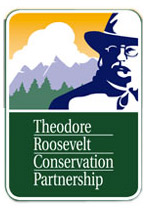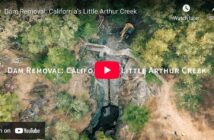 From TRCP:
From TRCP:
This week, Agriculture Secretary Tom Vilsack announced how his department would be rolling out $850 million in new conservation funding, the first round of investments made possible by last year’s Inflation Reduction Act. The TRCP applauds this move to help fund oversubscribed private land conservation programs at the Natural Resources Conservation Service that benefit fish, wildlife, habitat connectivity, and hunting and fishing opportunities in rural America.
The once-in-a-generation influx of conservation spending will support a diverse range of voluntary activities, such as planting filter strips and grassed waterways, improving grazing management, and restoring wetlands. These practices are being prioritized for their carbon sequestration and greenhouse gas reduction benefits, in addition to co-benefits of wildlife habitat and water quality improvements.
“Investing in working lands conservation has huge potential to benefit hunters and anglers,” says Aaron Field, director of private lands conservation for the Theodore Roosevelt Conservation Partnership. “The TRCP looks forward to working with the NRCS to ensure that fish and wildlife see dividends from climate-smart practices and that staff across the country have the tools and flexibility they need to get conservation on the ground.”
The U.S. Department of Agriculture also unveiled a Western Water and Working Lands Framework for Conservation Action—a comprehensive, multi-state strategy under the NRCS to address key water and land management needs. This includes supporting conservation practices that protect groundwater and surface availability and enhancing resilience to drought and other natural hazards. The USDA will also provide an additional $25 million in funding to support investments in more resilient water infrastructure in partnership with the Bureau of Reclamation.
“Today’s announcement of a Western water framework is a positive first step by the USDA to develop a strategic roadmap for assisting the region’s farmers and ranchers in responding to drought and other natural hazards,” says Alexander Funk, director of water resources and senior counsel for the Theodore Roosevelt Conservation Partnership. “We look forward to working with the department to direct necessary resources toward helping producers become more resilient to drought and other water resource challenges, maximizing co-benefits for fish and wildlife, and demonstrating the value of nature-based solutions to climate change, such as restoring wetland and riparian ecosystems.”
Many of these investments into the future of our watersheds will also help enhance fish and wildlife habitat. For example, modernizing irrigation infrastructure to improve water availability can help keep more water in streams and rivers during critical summer months, while minimizing other climate change impacts, such as warmer stream temperatures that have recently contributed to fishing closures on popular Western rivers. Farmers and ranchers also benefit from these infrastructure improvements through reduced labor and maintenance costs.
Founded in 2002, the TRCP is the largest coalition of conservation organizations in the country, uniting and amplifying the voices of sportsmen and women by convening hunting and fishing groups, conservation organizations, and outdoor businesses to a common purpose.



